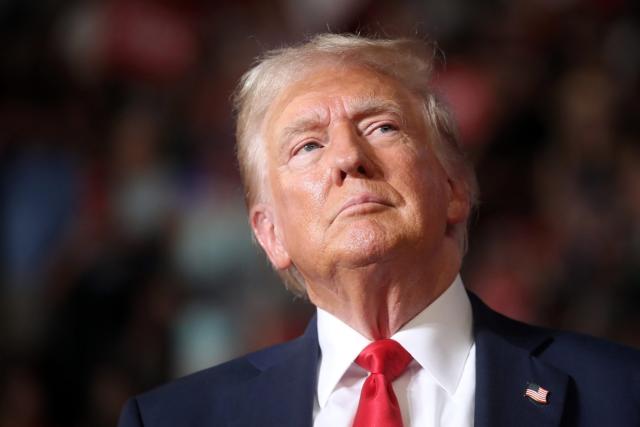Trump Floats Ending EV Tax Credits, Considers Elon Musk for Cabinet Role in 2024 Campaign
He proposed new tariffs to discourage the export of vehicles produced in Mexico by American automakers, a move reminiscent of his previous administration’s trade policies.
In a recent interview following a campaign event in York, Pennsylvania, Republican presidential candidate Donald Trump signaled his willingness to end the $7,500 tax credit for electric vehicle (EV) purchases if elected, casting doubt on the future of incentives that have fueled the EV market’s growth under the Biden administration. Trump, while expressing support for electric vehicles, voiced skepticism about government-driven tax incentives, stating, “Tax credits and tax incentives are not generally a very good thing.”
This stance marks a continuation of Trump’s previous efforts during his presidency to repeal the EV tax credit, which was later expanded by President Joe Biden in 2022. Trump emphasized that although he supports various forms of automotive technology—including gasoline-powered vehicles, hybrids, and electric cars—he believes in a free market approach where consumers are not limited by government mandates.
Trump also hinted at a potential collaboration with Tesla CEO Elon Musk, suggesting that he would consider naming Musk to a cabinet or advisory role in his administration. “He’s a very smart guy. I certainly would, if he would do it, I certainly would. He’s a brilliant guy,” Trump said of Musk, who recently expressed public support for Trump’s presidential bid. Musk, however, has not confirmed his willingness to accept such a role but posted a light-hearted AI-generated image on social media, playfully hinting at a possible “Department of Energy Efficiency.”
While Trump praised Musk’s intelligence and business acumen, the potential alliance could face complications given their differing views on the EV industry. Trump’s critical stance on the EV tax credit and his broader skepticism about a full transition to electric vehicles could clash with Musk’s business interests as the head of Tesla, a company at the forefront of the electric vehicle revolution.
In addition to his comments on the EV tax credit, Trump outlined a protectionist vision for the U.S. auto industry. He proposed new tariffs to discourage the export of vehicles produced in Mexico by American automakers, a move reminiscent of his previous administration’s trade policies. Trump also expressed a desire to prevent Chinese automakers from establishing new plants in Mexico aimed at supplying the U.S. market, arguing that such developments undermine the American car industry. Instead, he advocated for policies that would incentivize foreign automakers to build plants within the United States, creating jobs for American workers.
“I want to make our own cars,” Trump declared, reiterating his commitment to reviving and protecting the U.S. manufacturing sector. His comments reflect a broader campaign theme focused on economic nationalism and reversing what he views as the outsourcing of American jobs and industries.
As Trump continues his campaign for a second term, his proposals are likely to generate significant debate, particularly within the automotive industry and among environmental advocates who view EV tax credits as essential for reducing carbon emissions. The potential appointment of Musk to a key role in a future Trump administration further adds intrigue to the evolving dynamics between two of the most prominent figures in American business and politics.






